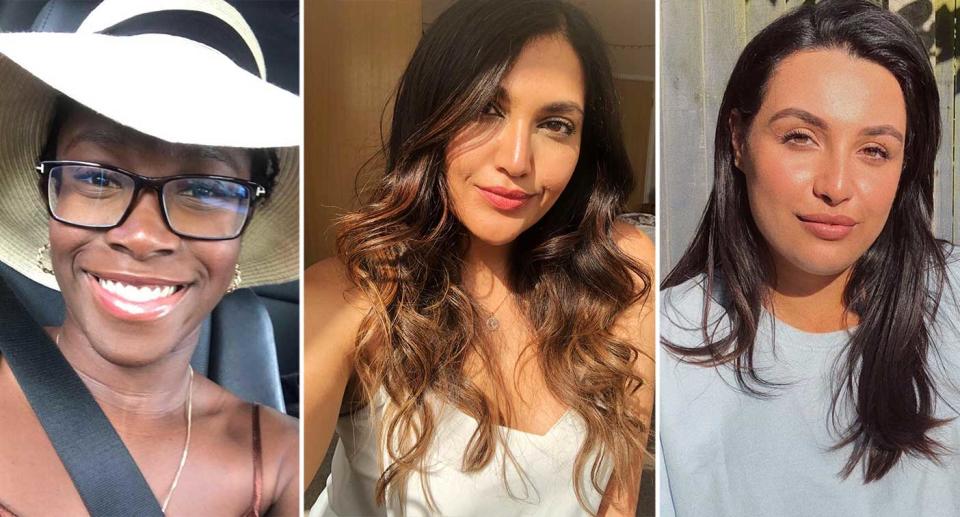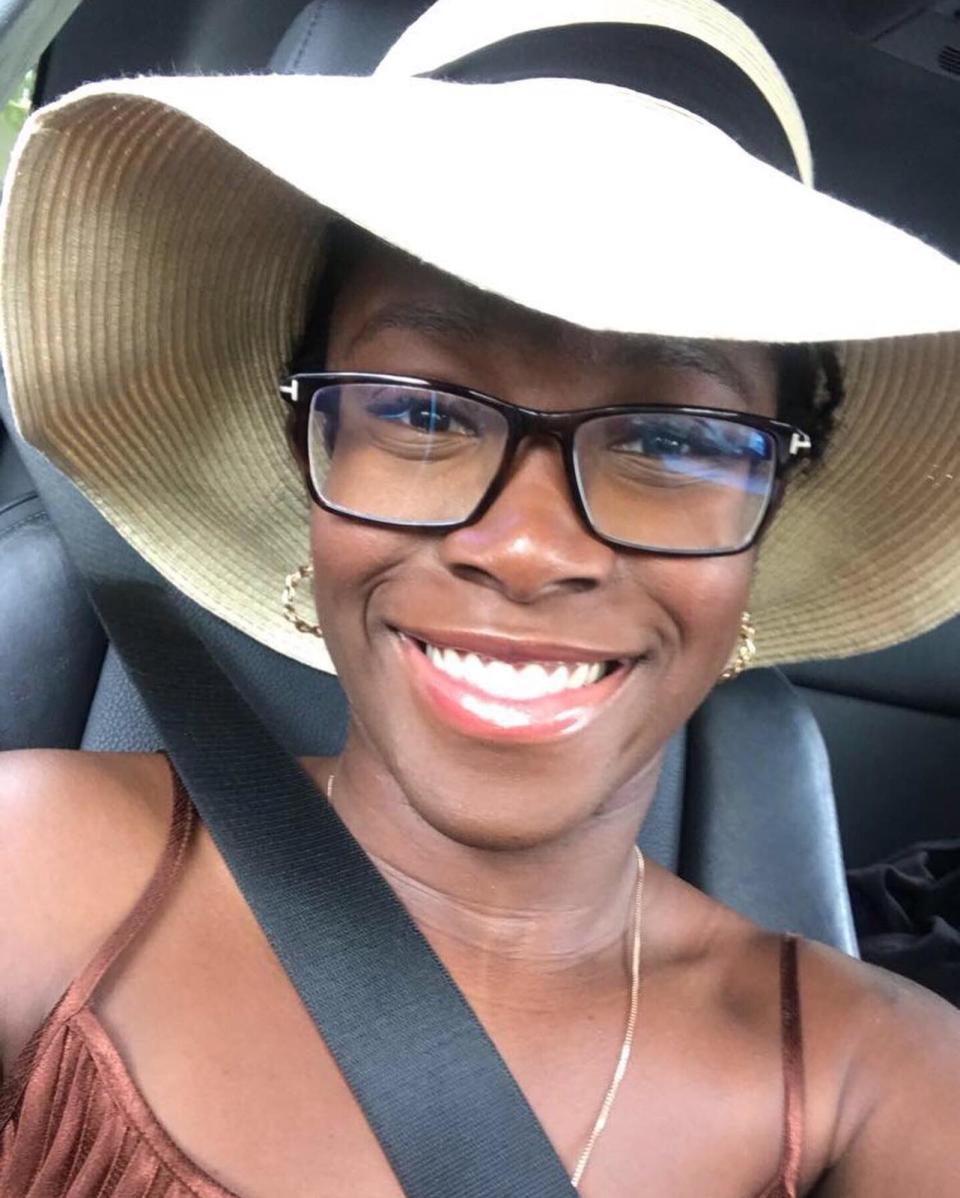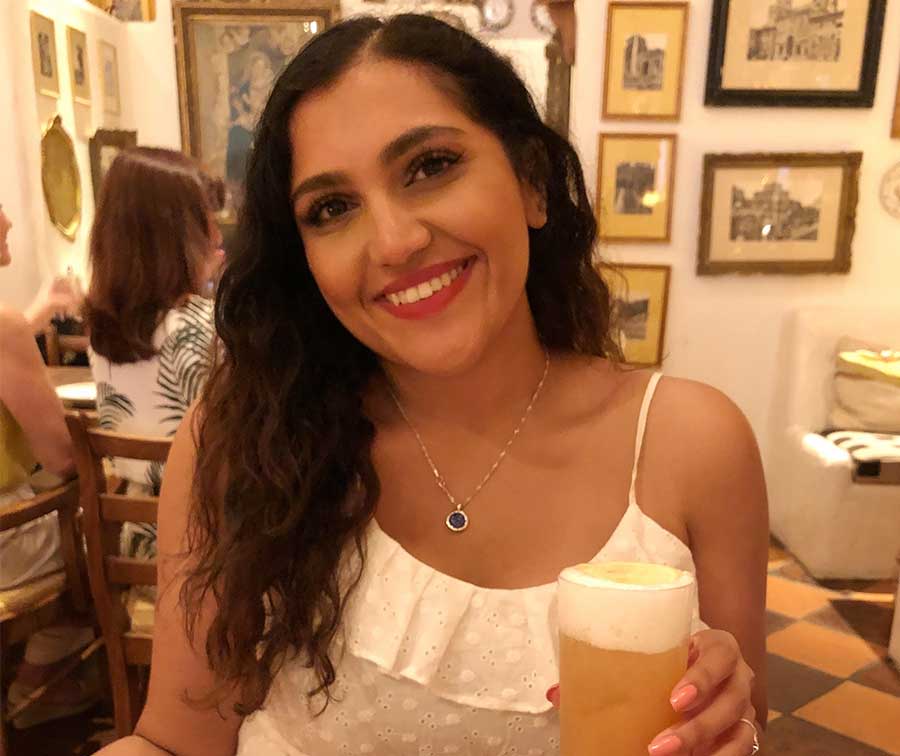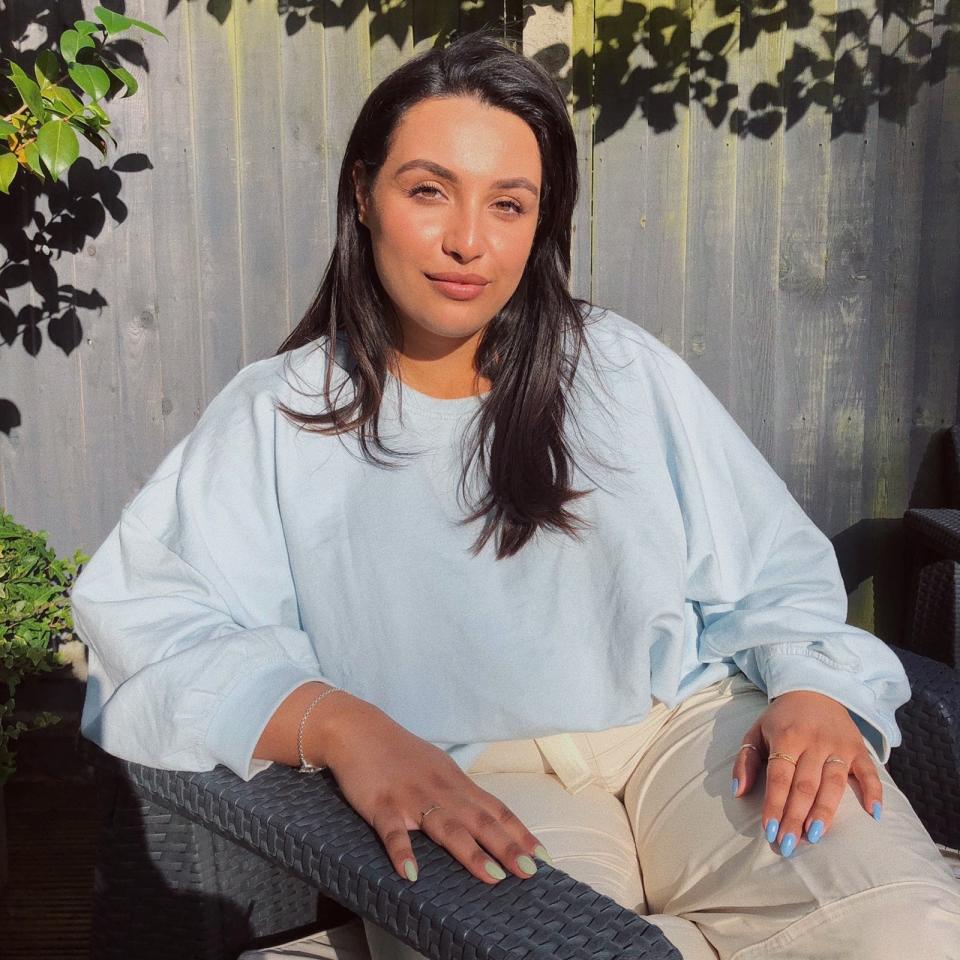‘Where are you really from?’ Why you shouldn’t ask your ethnic minority date this question

We don’t pose this question at work or in other social situations. Tanyel Mustafa asks why it became part of the dating lexicon - and what impact it can have
I recently set the record for my shortest video date: 3 minutes and 33 seconds.
After saying hello, I was asked: “Where are you from?” My answer – “London” – wasn’t good enough.
He pressed on: “Where are you really from? Where are your parents from?” My olive skin, dark features and foreign name didn’t match up to my answer, in spite of my accent. It was around then I hung up.
I posted what happened on Instagram and was flooded with replies from women of different ages and backgrounds relating to this common experience. Individual ethnic groups encounter their own set of offensive behaviour, but being asked where you’re from seems to be a question that unites us all.
We don’t ask this question in the first instance when we make a new friend, nor at work when someone new starts. So why is this question still readily a part of the dating lexicon? Even dating apps are divided on what the best course of action is around ethnicity filters.
The problem with the question is that it doesn’t distinguish between home and heritage. Siobhan Copland, a relationship expert, says it “implies that you’re not from this country”.
The only reason people ask me that question is because I’m not white Amara, 24
Siobhan, who herself is from a mixed race background, explains that for ethnic minorities born in Britain the question can be triggering.
“The moment that somebody says ‘Where are you from?’ it makes us feel that we will never be accepted as British and that we’re basically immigrants – even if we’re third generation,” she says.
Amara, 24, who is of Nigerian heritage, says when immediately faced with this question on a date it makes her wonder whether her experience as a British person is “valid”.
“The only reason people ask me that question is because I’m not white,” she says, recounting a time that a date admitted to asking her because she is black.

She says that while “it’s not intentionally malicious, it’s deep-rooted in racism,” and that repeatedly encountering this in a dating context is both draining and frustrating.
Born and bred in London, when Amara moved to the less-diverse Oxford last year she saw these issues intensify. Whereas previously she would answer the question by revealing her ethnic background, in Oxford she leaves the answer simply at “London”.
“I want to see what that person’s response is going to be – it’s almost like a test,” she says. “After meeting potential partners who ‘just wanted to try a black girl’, it’s an essential screening process.”
When Kiran, 26, started seeing her now-fiancé, she appreciated that her Indian ethnicity wasn’t an instant talking point. When asked where she’s from, Kiran will tell you “Yorkshire”. If pushed on that she feels uncomfortable, thinking on how Asian women can be fetishised.
The best way to talk about ethnic heritage, she says, is to “bring it into conversation naturally and organically”.

Kiran went to a Mexican restaurant for her first date with her fiance, and feeling comfortable, she joked about loving spicy food due to her Indian heritage.
She preferred being the one to introduce the topic as her white fiance “will never know that feeling of being asked ‘Where are you from?’”
Rhiannon, 23, has been thinking about this lack of knowledge, too. She’s spoken to her Egyptian mother and her mixed race friends about being asked this question – they all have similar stories.
Only recently did Rhiannon have the conversation, for the first time, with her white father. “I’ve never even been to Egypt,” she adds.

“I said to him people can never accept the fact that I’m from Surrey – they always have to keep probing.” She says her father was shocked, and she believes their talk caused a “small awakening”.
Siobhan thinks the question is typically asked out of curiosity (wanting to better understand someone), and ignorance (it would, after all, be strange to intend on offending your date). The problem is, despite good intentions, “some people could take it as a micro-aggression”.
She advises that people “start thinking outside the box [with these] fact-finding questions”. The reality is, “it’s become this norm question to ask”.
“Unless that question is followed up with more questions surrounding the actual culture and wanting to develop a cultural understanding, we need to think twice about throwing that comment out there.”
Siobhan wants people to consider: what are you gaining from knowing this and is it relevant to deciding whether someone is a good match for you?
Dating someone of a different ethnic heritage may involve some education and, if so, askers need to change their timing (so it’s not the first question asked) and language (so it’s considerate). Ideally, the subject should arrive in an unprompted context.
Mistakes are sometimes made, in which case Siobhan says it’s best to own it and apologise. Correct the language used and explain that you meant to ask about the person’s ethnicity, rather than imply that the UK isn’t their home country.
Bad delivery of the question can easily make someone feel like an “exotic creature” or an “outsider”, feelings that even Siobhan herself has resonated with.
For those being asked the question, Siobhan says that simply repeating where you were born isn’t helpful for either party. “You’ve probably decided already they’re not for you, so you’re not giving the person a chance,” making progress near impossible.
If you’re trying to date me you should want to understand me in all my complexity, not just see me as a one-dimensional individual Amara
If someone hasn’t experienced this, they simply might not understand the issues with the phrasing or timing of the question. While it can be infuriating to feel the need to “educate people”, Siobhan says sometimes this can help you figure out the person’s willingness to learn.
So when questioned, Siobhan instead suggests turning it back on your date and asking “What makes you so curious?”
Doing this is likely to cause embarrassment and a swift backtrack, or it could open a window to honest conversation, she says, adding that you could also directly put to your date: “Why are you asking me that and do you think I wasn’t born here?”
By pretending you don’t understand the subtext, Siobhan says you’re denying yourself an opportunity for someone to appreciate something which is inherently part of who you are.
But perhaps it’s Amara who sums it up best. It’s not that she isn’t proud of her heritage, she wants to celebrate it.
But, she says: “If you’re trying to date me you should want to understand me in all my complexity, not just see me as a one-dimensional individual – which I am far from.”

 Yahoo Sports
Yahoo Sports 